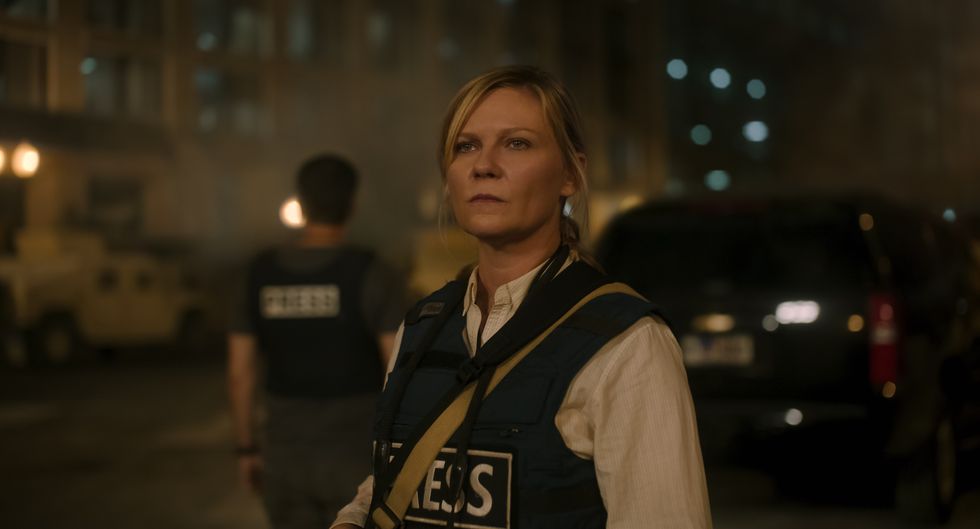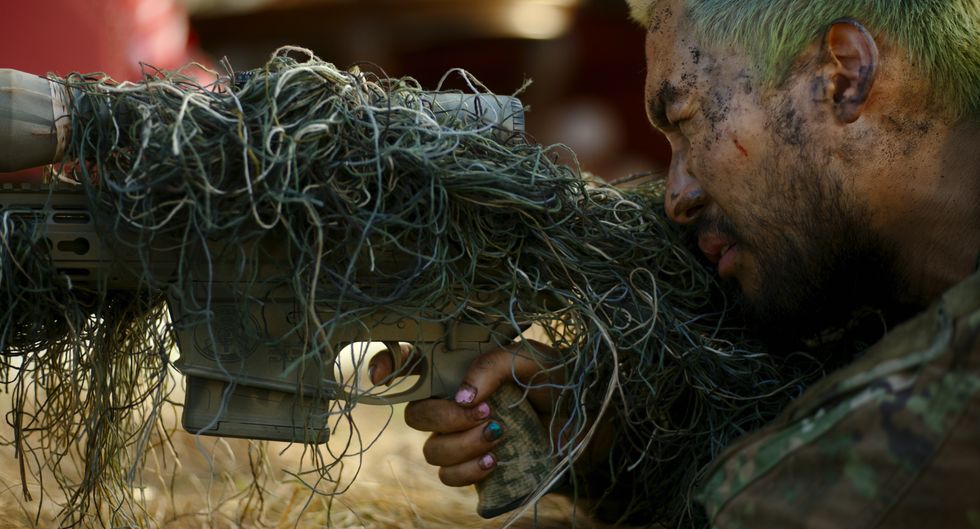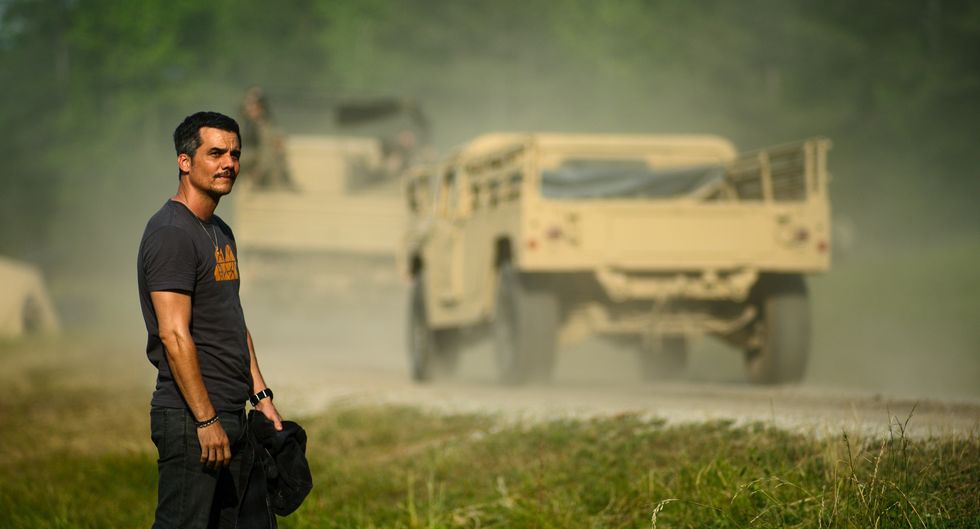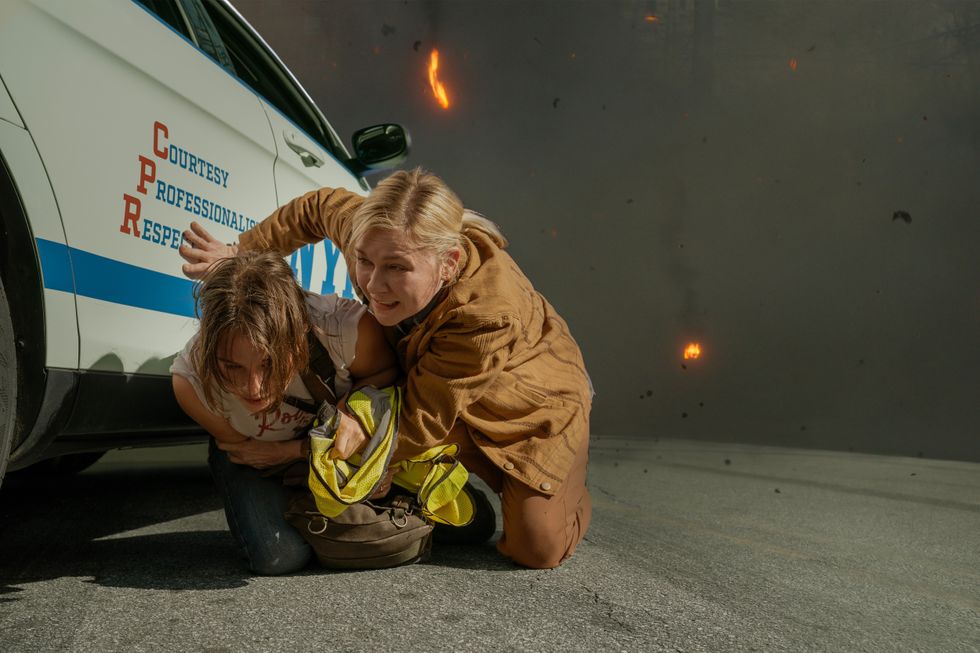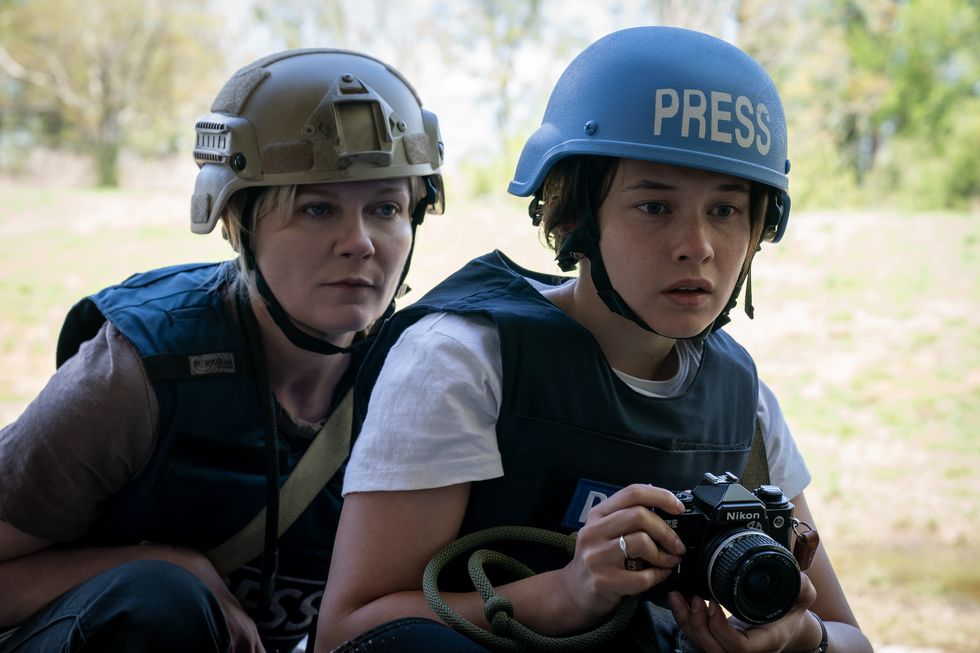'On Her Shoulders' Elevates Documentary Into a Powerful Living Memory
Sometimes the best stories are the most challenging to tell.

With the unfortunate abundance of global conflict and the fortunate abundance of affordable filmmaking tools in recent years, many intrepid documentarians have attempted to put a human face on war through films. Several have failed, simply adding to the piles of “war porn” that exploit human suffering for affect. Many have succeeded, helping foreign audiences connect with war victims and even creating a groundswell of support for their causes.
Alexandria Bombach’s remarkable On Her Shoulders will surely fall into the latter category. The exceedingly well-crafted film, which Bombach shot and edited, follows Nadia Murad Basee Taha who, having escaped ISIS persecution after they murdered her family and kept her as a teenaged sex slave, becomes an unwitting but tireless activist on a mission to save what remains of her people, the Yazidis.
Despite what would seem like real successes—being represented by the glamorous Amal Clooney and nominated for a Nobel Peace Prize—the young activist refuses to rest, let alone celebrate, until all of her people are safe. In the documentary, we witness her global advocacy, the pain of reciting her horrific ordeals over and over again, and the incredible strength of human spirit residing in one “simple farmer” who now holds the fate of a people in her hands.
The documentary was filmed with an initimacy that was painfully navigated by Bombach, clearly wanting to respect the boundaries of a subject from whom so many people wanted so much. We spoke with the filmmaker after the film’s Sundance premiere—where she was awarded the U.S. Documentary Directing prize—about these challenges, her one-woman-band process, and more.
NFS: At the Sundance Q&A, you said that you saw On Her Shoulders as a “living memory.” How is that different from other documentaries?
Bombach: It’s not that the doc itself is a living memory, but that [protagonist Nadia Murad] is going through a living memory. She has these horrific things that have happened to her, and then she's constantly being inundated with more things, more news, more stuff going on all the time. Family members still in captivity and things like that.
I wanted the film to not just feel like, “Okay, she's talking about it now and now it's about bureaucracy and politics.” I wanted you to feel that when she's meeting with politicians, you’re still remembering that she's thinking about this thing all the time. It's palpable. It's always there. Because I think sometimes we can state the facts and then move on to another topic. I wanted everything in this film to be how I felt when I was with her, that it never stopped.
I remember walking down the street with her in Greece. We saw a bowling alley.
I asked, "Nadia, have you ever been bowling?” and she said no.
I was like, "Do you want to go?"
She was like, "I can't."
I was like, "Why?"
She said, "We're in mourning."
NFS: It's so clear. As a viewer it feels like every time Nadia has a moment of pleasure, it immediately becomes a moment of agony, which is so hard to watch.
Nadia: I wanted viewers to understand that she is always thinking about it. In the edit, I was overlapping voices and having voices continuing on over other scenes or placing b-roll in places where she's not actually there at the moment, because I wanted all of her experiences to feel kind of wrapped in together so that comes across.
NFS: There seems to be a single interview with Nadia that is threaded throughout. At what stage during production did the interview happen?
Bombach: It's just one interview, yeah. It actually happened in between her ambassadorship and the UNGA speech, which was only four days apart. It was a very stressful time. It was out of necessity that it needed to be then. I wanted to do it at the end because I just wanted to make sure I was in tune with what I wanted to ask.
So much of what Nadia goes through with media is them asking her similar questions, that, like she says in the film, she wished people would focus on different things. For me, I wanted to give myself enough time to think critically about questions I wanted to ask. Also, just having filmed with her and seeing her walk out of the room when she saw herself on TV and things like that, I wanted to ask her about that kind of stuff. What is it like to be famous? She has amazing responses. She's like, "I wish I was famous for anything else. Anything.”
“All of the subjects that I interviewed cried throughout the interview.”
NFS: You had spent more than a year filming with her and then you asked her all these questions. Did you learn anything new then or was it more of a summary?
Bombach: No, because I didn't know what she was saying.
NFS: You didn't have a translator with you?
Bombach: I did, but Nadia only had a specific amount of time. It was very difficult in the moment, because she could see both of us through the Interrotron and it was such a stressful time that I was just asking as many questions as I could. She's so eloquent. I knew that there was something good going on in there. In that moment, there wasn't an opportunity for follow up because the translator was nowhere near as eloquent as Nadia was. I got the gist of what she was saying.
Honestly, something that I didn't really realize was it was so cathartic to be in that room with just her. A lot of the interview was just so emotional. So to be in an all black room...All of the subjects that I interviewed cried throughout the interview. I only got these bits of time when Nadia wasn't crying. I think to go from a crazy, crazy, crazy schedule and then put in a room and we ask these questions, that it was awful. I don't know if I would ever do it again because I didn't realize how bad it was going to be.
I think it was cathartic for her to talk about it. But a bit of me not asking the interpreter every time, "What did she say now," is I just wanted to get it over with. I wanted to be respectful of her time.
NFS: It sounds excruciating.
Bombach: Yeah. You can imagine. The whole thing, from editing to shooting everything, just felt just so painful. To be here at Sundance and for people you know and love to come up and say they love the film, or people I don't even know come up and understand, it's overwhelming. Now I'm going to cry.

NFS: We can get technical, to move away from the emotional stuff. What did you shoot with and why?
Bombach: I shot with a [Canon] 5D Mark III. I tried to be as small as possible. I had a JuicedLink on the bottom of the camera that had two XLRs. I had normally just a shotgun on top and sometimes a wireless mic, but it really wasn't an option a lot of the time just because it's so hard to ask her to put it on.
I wanted to have that camera because it's low profile, one for the intimate spaces we were in, and a lot of times we had to be physically small, like in a car, and to be fast. I couldn't hold [Nadia and her team] up, so I needed to have very little gear that was very compact. It needed to be something where I could be just me, because there were enough of them that I could barely for in the car with them.
The other thing is we were going to a lot of governmental buildings. I know from my last film that having a bigger camera means you are held up longer. It's just the simple equation of it. It was a perfect work horse, too, because it doesn't feel like it when you watch, but things were moving very, very fast. I was running a lot. was sprinting most of the time. Nadia is hard to keep up with.
NFS: You mentioned at the Q&A that there was a period where Nadia didn't even really even want you there filming. I think navigating how to respect your subject’s boundaries but also continue filming is a common documentarian’s challenge. How did you sit through that and know that you were still going to get a film?
Bombach: I'm glad you're asking because it's so important for me to put that out there. I get almost self-conscious and I don't want to take credit and give the idea that I had amazing access to this woman, like “She got the access.” No. This is an amazing film because of Nadia allowing me any of this at all.
In terms of knowing whether I’d actually get a film, it was really, really hard. I didn't know it was going to eventually turn out. I knew that we could get the interview. I knew I could show her and that I could maintain a space away from her as far as I could. If you watch the film, I think you could see that period. I even remember getting feedback a couple times of people being like, "There's this section where we feel like we don't hear from Nadia." I'm like, "Yeah, she was literally hiding from me." I didn't want to be that for her.
But it worked out in the end. She sent me a photo, a picture of me is on her fridge. I hope she's proud of what we're able to do. I hope that this film can take a role that she doesn't want to do anymore of. I hope it has that storytelling power for her so she doesn't have to go around doing it herself all the time.
“I'm a feedback hound...I really enjoy that masochistic process.”
NFS: I understand that you edited yourself after you had shot most of it yourself. How did you separate yourself enough from the material in post?
Bombach: I edited my last feature, too. For me, I think it's very unique to the kind of stories I want to do. I don't think I could describe the feeling of being with Nadia to an editor that wasn't there. I think I figure out so much in the film by editing. Honestly, I consider myself an editor and a cinematographer, and then I go to film festivals and they call me a director. I just went to the Art of Editing reception and I was just so proud to be there. I really do feel like that is where the heavy lifting is in documentary.
As far as getting away from it, I'm a feedback hound. For me, I think it's almost like a lifelong pursuit. It's like being a better interviewer or something. Being good at taking feedback is so important. I want to get better and better and better at it. That is, not only taking it, but knowing what not to take. Also, reading the notes behind the notes and understanding when certain people are good for notes in the very beginning, and knowing when some people are better for notes at the end. And checking your own ego at the door, but also holding your own.
I love getting feedback. It's such a painful process, but it's so fascinating. It's so interesting. I really enjoy that masochistic process. Real sicko.

Bombach: Yes. I had worked with Patrick Jonsson on my last film, Frame by Frame, and I love everything he does. He's so amazing. He's just such an empathetic person that I feel like I can have very elevated conversations with him.
I remember the first Skype call I had with him about this film, I was like, "Patrick, I'm so worried because I do not know how this sounds." I feel like with Frame by Frame we kind of knew what we wanted. I had no idea how the process worked because that my first feature, and I had never worked with a composer before. He was the most gracious person for that first time and process. With this film, I didn't know what it looked like. It's also sensitive and he was just very sensitive with it. I'm so thankful for him.
NFS: Do you have advice for other filmmakers who are reliant on one main protagonist, in terms of you navigating that even from the initial approach?
Bombach: Start by making a short film in your head. I think it's important to not decide a length of the film until you're with the subject. I think paying attention to that is really important when you have one person. I think a lot of stories should be short.
I love shorts. I want to make many, many more shorts. It's okay to be short. There's nothing wrong with it. I think we get confused sometimes with narratives and the whole idea of a calling card, but that doesn't exist in docs, I don't think.
For more, see our ongoing list of coverage of the 2018 Sundance Film Festival.


